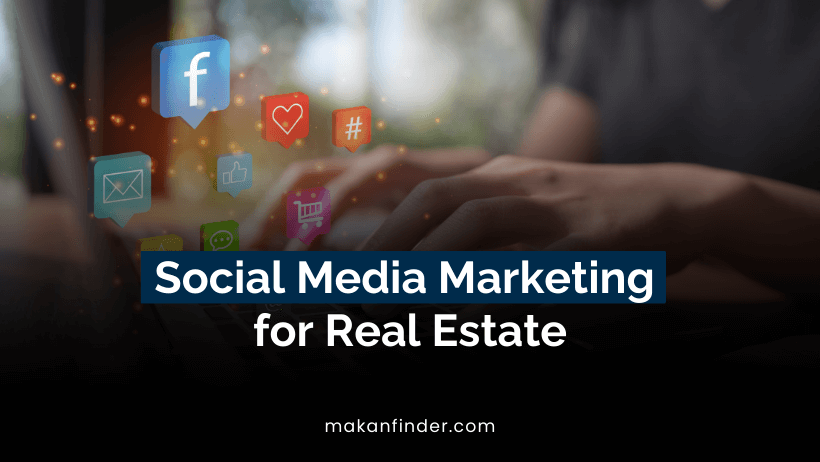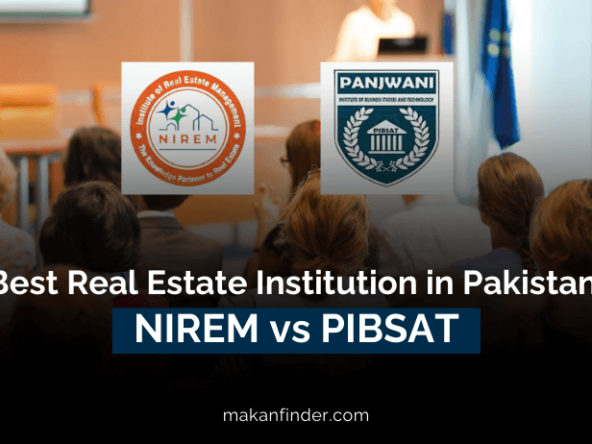Social Media Marketing for Real Estate
Social media has become an integral part of our lives, transforming the way we communicate, interact, and even do business. It has also emerged as a powerful tool for real estate professionals to connect with potential clients, showcase properties, and build their brand. Social media marketing for real estate offers a unique opportunity to reach a broader audience, engage with prospects, and generate leads in a cost-effective and efficient manner.
In this guide, we will explore the fundamentals of social media marketing for real estate and provide you with strategies and tips to maximize your success in this dynamic digital landscape. Whether you are a real estate agent, broker, property developer, or investor, harnessing the power of social media can significantly enhance your marketing efforts and help you stay ahead of the competition.
Advantages of Social Media in the Real Estate Industry
In the competitive world of real estate, agents must always be alert and proactive. With nearly all agents utilizing online platforms to showcase their property listings, establishing a distinctive online presence is crucial.
Exploiting social media in real estate unlocks numerous benefits for your brand, including:
1. Increased Awareness
Looking to attract more attention to your listings? Eager for a greater turnout at your open houses? Incorporating social media into your real estate strategy is one of the most effective ways to convert views into sales. Not only does it expose you to thousands of potential clients, but it also serves as a reminder to past clients of why they chose to work with you before and why they should do so again.
2. Enhanced Engagement
Social media enables direct communication and engagement with your audience. You can respond to comments, messages, and inquiries promptly, fostering a sense of trust and reliability. Engaging with your audience also allows you to address their concerns, provide personalized assistance, and showcase your expertise in real estate.
3. Showcasing Properties
Social media platforms are highly visual, making them ideal for showcasing properties. You can share high-quality photos, videos, virtual tours, and 360-degree images to provide potential buyers with a compelling and immersive experience. This visual content helps generate interest, attract qualified leads, and increase the likelihood of property inquiries.
4. Targeted Advertising
Social media platforms provide advanced targeting options, allowing you to reach specific audiences based on demographics, interests, behaviors, and even location. This targeted advertising capability helps you focus your marketing efforts on individuals who are most likely to be interested in your properties or services, increasing the efficiency and effectiveness of your campaigns.
5. Networking and Partnerships
Social media platforms, particularly LinkedIn, offer opportunities for real estate professionals to network with industry peers, build relationships, and establish partnerships. By connecting with other professionals, you can access valuable insights, collaborate on projects, and expand your professional network.
6. Market Insights:
Social media platforms provide real-time access to market trends, industry news, and consumer preferences. By monitoring conversations, engaging in industry groups, and following relevant influencers, you can stay up to date with the latest developments and gain insights that can inform your marketing and business strategies.
7. Cost-Effective Marketing
Compared to traditional marketing channels, social media marketing is often more cost-effective. Many social media platforms offer both organic and paid advertising options, allowing you to tailor your marketing budget to your specific needs. Additionally, the ability to track and analyze performance metrics helps you measure the return on investment (ROI) of your social media marketing efforts.
Keys To Take Away
Understanding Social Media Platforms:
- Facebook : The largest social media platform with extensive targeting capabilities and advertising options.
- Instagram : A highly visual platform ideal for showcasing property photos and videos.
- Twitter : A platform for sharing short and concise updates, industry news, and engaging in conversations.
- YouTube : A video-sharing platform where you can create virtual property tours and informative videos.
- LinkedIn : A professional networking platform suitable for establishing industry connections and targeting business professionals.
Defining Your Target Audience:
- Identify your ideal clients, such as first-time homebuyers, investors, or luxury property seekers.
- Understand their demographics, interests, and pain points to tailor your content and messaging accordingly.
Creating Compelling Content:
- High-quality photos and videos: Capture professional images and videos of your properties to highlight their best features.
- Virtual tours: Provide immersive virtual tours to give potential buyers a realistic experience.
- Educational content: Share valuable tips, guides, and market insights to position yourself as a knowledgeable real estate professional.
- Client testimonials: Feature positive testimonials and reviews from satisfied clients to build trust and credibility.
Engaging with Your Audience:
- Respond promptly to comments, messages, and inquiries to demonstrate your attentiveness and customer service.
- Initiate conversations by asking questions, conducting polls, and seeking opinions from your audience.
- Encourage user-generated content by running contests or asking followers to share their homebuying experiences.
Leveraging Advertising and Targeting:
- Utilize the targeting options available on social media platforms to reach the right audience based on location, demographics, interests, and behaviors.
- Run paid advertisements to promote your listings, generate leads, and increase brand awareness.
Monitoring and Analytics:
- Use social media analytics tools to track the performance of your posts, campaigns, and overall social media presence.
- Monitor engagement metrics, such as likes, shares, comments, and click-through rates, to understand what content resonates with your audience.
Remember, consistency is key in social media marketing. Develop a content calendar, establish a posting schedule, and maintain an active presence to build your brand and foster long-term relationships with your audience. By implementing effective social media strategies, you can elevate your real estate marketing efforts and drive meaningful results in today’s digital age.
7 Things to Avoid in Social Media Marketing for Real Estate
While social media marketing can be highly beneficial for the real estate industry, there are certain pitfalls and mistakes that should be avoided to ensure a successful and effective strategy. Here are some things to avoid in social media marketing for the real estate industry:
1. Overpromoting and Excessive Sales Pitch
Avoid bombarding your audience with constant sales pitches and promotional content. Social media is about building relationships and providing value to your audience. Focus on sharing informative and engaging content that educates, entertains, and solves problems for your audience. Find a balance between promotional content and valuable, non-sales posts.
2. Ignoring or Neglecting Engagement
Social media is meant to be a two-way conversation. Ignoring or neglecting engagement from your audience can harm your reputation and hinder your success. Always respond promptly to comments, messages, and inquiries. Engage with your audience, answer their questions, and show genuine interest in their needs and concerns.
3. Inconsistent Posting and Lack of Strategy
Posting inconsistently or without a well-defined strategy can dilute your message and reduce the effectiveness of your social media efforts. Create a content calendar and posting schedule to maintain a consistent presence. Develop a strategy that aligns with your goals, target audience, and the platforms you use. Plan your content in advance and ensure it aligns with your brand identity.
4. Neglecting Visual Appeal
Real estate is a visual industry, and the quality of your visuals can significantly impact engagement and interest. Avoid using poor-quality images or videos that do not showcase your properties effectively. Invest in professional photography, use high-resolution images, and create visually appealing content to attract and captivate your audience.
5. Lack of Targeting and Audience Segmentation
Effective targeting and audience segmentation are crucial for reaching the right audience with your social media content. Avoid casting a broad net and hoping for the best. Instead, define your target audience and create tailored content that speaks to their specific needs and interests. Utilize the targeting options available on social media platforms to reach the most relevant individuals.
6. Failure to Analyze and Adapt
Social media marketing requires continuous monitoring, analysis, and adaptation. Avoid the mistake of not tracking your performance metrics or failing to learn from them. Regularly review your analytics to understand what content resonates with your audience, which platforms drive the most engagement, and how your strategies are performing. Use this data to refine your approach and optimize future campaigns.
7. Neglecting Platform-Specific Optimization
Each social media platform has its own unique features, algorithms, and best practices. Neglecting to optimize your content for each platform can limit its reach and effectiveness. Understand the platform-specific nuances, such as optimal image sizes, character limits, hashtags, and content formats, to maximize engagement and visibility.
By avoiding these common pitfalls, you can enhance the effectiveness of your social media marketing efforts in the real estate industry. Remember to prioritize building relationships, providing value, and consistently engaging with your audience to achieve long-term success.
13 Reason why social media marketing is important in real estate industry
- Expanded Reach: Social media allows real estate professionals to reach a wider audience beyond traditional marketing channels.
- Increased Brand Awareness: Social media platforms help build brand recognition and establish a strong online presence.
- Visual Showcase: Social media provides a visually engaging platform to showcase properties through photos, videos, and virtual tours.
- Lead Generation: Social media marketing generates leads by driving traffic to property listings and capturing contact information.
- Engagement and Relationship Building: Social media enables direct communication with the audience, fostering trust and building relationships.
- Targeted Advertising: Social media platforms offer advanced targeting options to reach specific demographics and interests.
- Cost-Effective Marketing: Social media marketing is generally more cost-effective than traditional advertising channels.
- Market Insights: Social media platforms provide real-time market trends, industry news, and consumer preferences.
- Competitive Advantage: Utilizing social media marketing helps stay ahead of competitors and stand out in the industry.
- Measurable ROI: Social media analytics provide insights into campaign performance and measure the return on investment.
- Reputation Management: Social media allows for proactive reputation management by responding to feedback and reviews.
- Networking and Partnerships: Social media facilitates connections with industry peers and potential partners.
- Stay Connected with Clients: Social media allows real estate professionals to stay in touch with past and current clients, nurturing repeat business and referrals.
These reasons highlight the importance of social media marketing in the real estate industry, enabling professionals to reach, engage, and build relationships with their audience, while also generating leads and staying competitive in the market.
Frequently Asked Questions (FAQs)
Which social media platforms should real estate professionals focus on?
The choice of social media platforms depends on the target audience and marketing goals. However, popular platforms for real estate include Facebook, Instagram, LinkedIn, Twitter, and YouTube.
How can social media marketing help in lead generation for real estate?
Social media marketing can drive traffic to property listings, capture leads through contact forms, and provide a platform for direct communication and relationship-building with potential clients.
What type of content should real estate professionals share on social media?
Real estate professionals should share a variety of content, including property photos and videos, virtual tours, market updates, educational articles, client testimonials, and industry insights.





